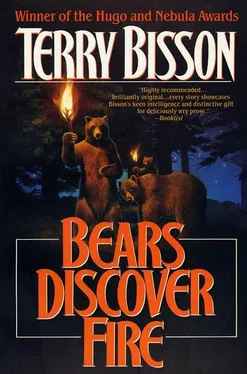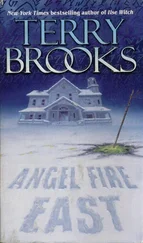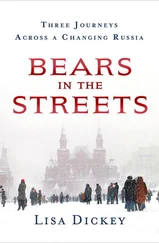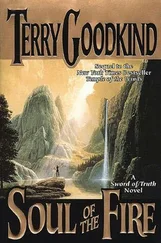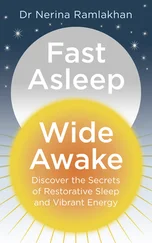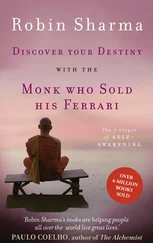How? I don’t know exactly. I never listen to the technical part. Some kind of submolecular-nano-mini-mumbo-jumbo. But he explains it all, I’m pretty sure. I think there’s even a diagram. Anyway, he explains how all the toxic wastes for the year have been collected and concentrated into a single Donut. The fiscal year, by the way. That’s why the Ceremony is tonight and not New Year’s Eve.
Okay. Anyway. Hands you the bag. Exits Stage Right, 9:27. Now it’s just you and the Host, and of course, the Donut, still in the bag.
It might be a little greasy. You can hold it at the top if you want to. Whatever.
Anyway. Okay. It’s 9:28. You’ll hear a drumroll. It might sound corny now but it won’t sound corny then. I know because I’ve been here every year for six years, standing right over there in the wings, and I get a tear in my eye every time. Every damn time. The camera pulls in close. This is your moment. You reach in the bag and—
Huh? It looks like any other donut. I’m sure it’ll be glazed, if that’s what you requested.
Okay. Anyway. 9:29, but don’t worry about the time. This is your moment. Our moment, really, everybody in the world who cares about the environment, and these days that includes everybody. You reach in the bag, you pull out the Donut—
What happens next? I get it, still joking. I admire somebody with your sense of humor. Kim.
Anyway. Okay. We all know what happens next.
You eat it.
CANCIÓN AUTÉNTICA DE OLD EARTH
“Quietly,” our guide said.
Quietly it was.
We glided over ancient asphalt, past ghost-gray buildings that glowed in the old, cold light of a ruined Moon that seemed (even though we have all seen it in pictures a thousand times) too bright, too close, too dead.
Our way was lighted by our photon shadow guide, enclosing us and the street around us in an egg of softer, newer light.
At the end of a narrow lane, four streets came together in a small plaza. At one end was a stone church; at the other a glass-and-brick department store facade; both dating (my studies corning through at last) from the High European.
“There’s no one here,” one of us said.
“Listen…” said our guide.
There came a rumbling. A synthesizer on a rubber-tired wood-and-wire cart rolled into the plaza out of an alley beyond the department store. It was pulled by an old man in black sweaters, layered against the planet’s chill, and a boy in a leather jacket. An old woman, also all in black, and a smiling man who looked to be about forty walked behind. His smile was the smile of the blind.
“They still live here?” someone asked.
“Where else could they live?”
They stopped and a small yellow dog jumped down from the cart. The old man opened the synthesizer’s panels and connected its cables to a moldering fuel cell. Sparks flew. The boy took a dirty bundle from the cart and unwrapped a strat and a tambourine. He handed the tambourine to the blind man.
The old lady carried a black vinyl purse. She watched not them, but us; and I had the “feeling” she was trying to remember who we were.
The blind man was smiling past us, over us, as if at a larger crowd that had come into the plaza behind us. He was so convincing that I even “turned” to look. But of course, the plaza was empty. The city was empty except for us and them; the planet was empty. It had been empty for a thousand years, empty while the seas fell and rose then fell again; empty since the twist.
The old lady watched while our guide flowed out and narrowed into a crescent, arranging us in a half circle around the musicians. Her face was as rough as the stones of the front of the church; her facade as fallen in.
Except for the boy’s leather jacket, which was too shiny, everything they wore was old. Everything was cheap.
Everything was black or gray.
The old man switched on the synthesizer and started to play chords in blocks of three. An electronic drumbeat kept time, a slow waltz. After a few bars the boy came in on the strat, high wailing tremolos.
“What about the singing?” someone complained in a whisper. “We came all the way across the Universe”—a slight exaggeration!—“for the singing.”
“They used to sing for the tourists,” our guide said. “Now there’s only the occasional special group such as ours.”
The blind man began to dance. With the dog at his feet, he waltzed around our little half circle and then back, beating the tambourine first against the heel of one hand and then against his hip. Where his feet brushed our photon shadow guide, his shoes sparkled and looked almost new.
As suddenly as he had started, he stopped, and the old man spoke in a shout:
“Hidalgos y damas estimadas —”
It was a variant of Latin which I could almost follow, Catalan or Spanish or Romany perhaps. Looking over us (just as the blind man had) the old man welcomed us back to our ancient, our ancestral home, where we would always be welcome, no matter how far we strayed, no matter how many centuries we stayed away, no matter what form it pleased us to take, etc.
“Yahara, una cancion autentica de old Earth…” He gave a nod to the boy, who played a blues figure high in the cutaway—
The blind man looked up to where a moon, the Moon, half filled the sky; then rose toward it on his tiptoes, and opened his mouth revealing blackened shards of teeth; and there was the singing we had come halfway across the Universe to hear.
The little dog following him, he walked as he sang—up, then down our half circle. It was quite beautiful. It sounded just as we had always imagined it might. His eyes were closed (now that he was singing) but the dog looked directly at us, one by one, from our “feet” upward, as if searching for something or someone. I could only partly follow the words, but as the song rose and fell I knew he sang of the seas and of the cities, and of the centuries before the twist, when genetics locked our parents to a single planet and a single form. His song soared to a wail as he sang of the centuries after, and of the Universe that was ours at last. Listening, we huddled together inside our photon shadow guide; everything outside it, under that ruined Moon, even the little yellow dog, looked abandoned and lost.
“They are the last?” one of us whispered.
“According to them,” our guide said, in its low tone, “there will be no more.”
The song was over. The singer bowed until the echo had died away. When he straightened and opened his eyes, they were filled like little seas.
“The cancion autentica is said to be a very sad song,” said our guide.
The old lady stepped forward at last. She opened the purse and someone produced a coin: the two met with a dink as if a long chain had just been closed. The dog followed in her footsteps as she walked around our half circle, holding out the purse, and each of us put in the coin we had brought. I wished I had brought two. Though where would I have found another? God knows what she did with them anyway. There was no trade, no commerce, nothing left to buy.
“The cancion autentica seemed very sad to me,” someone said. I “nodded” in agreement. Certainly we can no longer sing, and it is said that since the twist we no longer feel sadness, but what is hearing a thing if not feeling it?
What is the difference? How else account for the desolate colors where our faces might once have been?
Closing the purse, the old woman returned to stand beside the cart. The blind man seemed ready to sing again, but the old man began closing the synthesizer, folding its panels in on themselves. The boy wrapped the strat, and then the tambourine, in the blanket. The photon shadow guide pulled in, gathering us into its egg of light, while the dog watched.
Читать дальше
